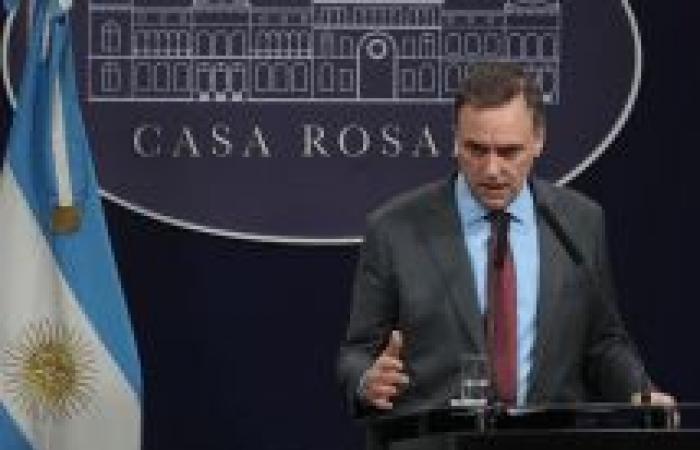One of the successes of the campaign and the government of La Libertad Avanza and President Javier Milei was to value the concept of human capital. In Argentina, a national official had never been heard addressing economic development from this perspective, which is one of the prevailing ones around the world today.
However, these advances still have a hard time transcending the purely theoretical level, and this is not surprising. It was likely that, in practice, A government without management experience would find it difficult to manage a mega-ministry that merged mega-ministries such as Education, Labor and Social Development.. Likewise, the discursive incurs logical contradictions.
In Diario RÍO NEGRO we explain why we see plausible the inclusion of the theory of human capital to guide management and, in parallel, we highlight controversial and contradictory aspects on the matter in these six months of government.
What is human capital
People carry out activities to improve skills, knowledge and/or health and, thus, access higher levels of monetary and consumption income later on.
Until not long ago, the word “capital” was used in economics to refer only to physical capital and/or financial capital. Human capital differs from these in the sense that it is not possible to separate the person from his knowledge, his skills or his health how an owner is separated from his machinery, his tools or his money.
To paraphrase Debraj Ray, who A person has more human capital implies that they are more qualified to producewhich is more suitable for handling complex machinery, which is more capable of generating new ideas and new methods in economic activity.
When a person eats healthily, when they have regular medical check-ups, when they undergo psychological therapy, when they do physical activity frequently, or when they study and prepare, is investing in itself and is accumulating human capital.
A country or region with more productive workers and processes will surely grow and develop faster.
That is the multidimensional nature of human capital, and the reason why we welcome the systemic and comprehensive treatment proposed by the Government.. A boy or girl who does not eat well will learn less at school. A person who had learning difficulties at school will find it more difficult to enter the workplace or academic environment. An outdated curriculum compromises the potential of students, in a constantly changing world.
At the microeconomic level, the greater a person’s endowment of human capital, the more productive they will be at work. At the macroeconomic level, a country or region with more productive workers and processes will surely grow and develop faster.
This last statement becomes more valid as the years go by. The strategic nature that knowledge-intensive industries have today for the development of nations is a clear example of the growing relevance of human capital..
The creation of the Ministry of Human Capital It is innovative and very appropriate to the current times. However, in just 190 days, its operation has shown notable flaws, and the story has inconsistencies that generate more questions than certainties.
The moment of truth
The merger of several ministries into one was one of Milei’s campaign promises; In fact, she appeared in the electoral platform of La Libertad Avanza. But When the implementation is carried out by people who, due to inexperience, are unaware of the mechanisms of the state, difficulties arise..
The brand new Ministry of Human Capital and its number one, Sandra Pettovello, are protagonists of the public debate as a result of the scandal over stockpiled food with a near expiration date.
This event revealed the ineffectiveness of the Government. In a country with high and growing poverty, there were tons of food immobilized and about to expire in state warehouses.
The elimination of intermediation in the distribution of social assistance would have been efficient and sensible if it had contemplated supplementary, adequate and immediate mechanisms to assist those most in need.
One of the banners of the Pettovello management is the elimination of intermediation in the distribution of social assistance. The measure would have been efficient and sensible if it had contemplated supplementary, adequate and immediate mechanisms to assist the people most in need.. That didn’t happen.
While the distribution was delayed, more families knocked on the doors of dining rooms and picnic areas in search of food and received a “no” as an answer. Community entities faced growing demand and, at the same time, a reduction in the amount of merchandise received.. The food was there, but due to laziness it did not arrive.
According to Chequeado, the universal child allowance (AUH) and the supplement charged with the Alimentar Card have increased by 62% in real terms since December. They are one of the few benefits that beat the evolution of prices since Milei was president. However, The evolution of poverty and indigence indicators shows the insufficiency of this greater assistance to compensate for the adjustment.
- 62%
- Real increase in AUH since December.
As we explained, the nutrition of children is a fundamental factor in the future accumulation of human capital. The scandal caused by the discovery of undistributed food constitutes a first suspicion that the use of such a magnificent concept is limited, for now, to the merely academic.
In terms of discourse, the contempt that the president publicly expresses for the state should be added as a contradiction. There are plenty of lessons in the world that show that large-scale cognitive development of the population is difficult without public policies..
Education in the background
Gary Becker, the greatest exponent of the theory of human capital as we know it today, maintains that, of all the dimensions involved in the concept, education is the most economically important.
For this reason, it is striking how far behind education is on the list of priorities of the Government in general, and of the Ministry of Human Capital, in particular. A clear example of this is that among the 10 points of the announced May Pact, there is none that refers to education.. The non-inclusion of the topic in the decalogue is more striking because the governors were invited to sign it and because it is the provinces that are in charge of managing the educational systems.
- 24.1%
- It is the percentage of sixth-year primary school students performing below the basic level in mathematics in 2023.
It is difficult to leave behind “the antinomies of failure” without minimum agreements in education. The recent and reprehensible elimination of repetition in secondary school in the province of Buenos Aires, decided by the government of Axel Kicillof, makes the need for consensus more evident in pursuit of the educational quality of Argentines.
The results of the Learn tests, carried out in 2023 on sixth-year primary school students throughout the country, constitute another example of the need to put education at the center of the debate. 11.9% of students are below the basic level in language, and it is the worst value since 2016. Meanwhile, in mathematics this percentage is 24.1%, and is the highest since these evaluations were carried out.
This means that one in four students in the sixth year of primary school has difficulties, for example, multiplying with fractions and decimals or obtaining the perimeter or surface of a figure. It also means that almost 12% of students in that year of education still have problems interpreting texts.
It is difficult to understand why education is not among the “bases and starting points for the development of Argentines.”
Pettovello’s silence on these results is noisy. It is astonishing that in the face of this panorama the Government’s “educational policy” is limited to the delivery of vouchers, to complaints of indoctrination, and even to the announcement of a National Literacy Plan. in a country where illiteracy is 1%, according to UNESCO (The United Nations Educational, Scientific and Cultural Organization).
The most notable thing about the Government in educational matters has been its attempt to declare education as an essential service, guaranteeing a minimum of provision. Milei had done so through the Necessity and Urgency Decree 70/2023, but Justice later suspended it. The Government did not insist on the issue, and did not include it in the Base Law. It is difficult to understand why education is not among the “foundations and starting points for the development of Argentines”.
Knowledge will set you free.
Socrates.
During the week, eight projects to declare education as an essential strategic service began to be debated in Deputies. The initiatives to be discussed are from the Pro, the Civic Coalition and the Radical Civic Union. None are from La Libertad Avanza.
The inaction of the Ministry of Human Capital to reverse the Argentine educational deterioration supports the theory that such a pompous name is more of a catchphrase than a management guideline.
“Knowledge will set you free.” Socrates’ famous phrase should be very present in libertarian ideology. Only one eighth of the mandate has passed, and the Government still has time to begin a transformation of teaching and learning in Argentina.









